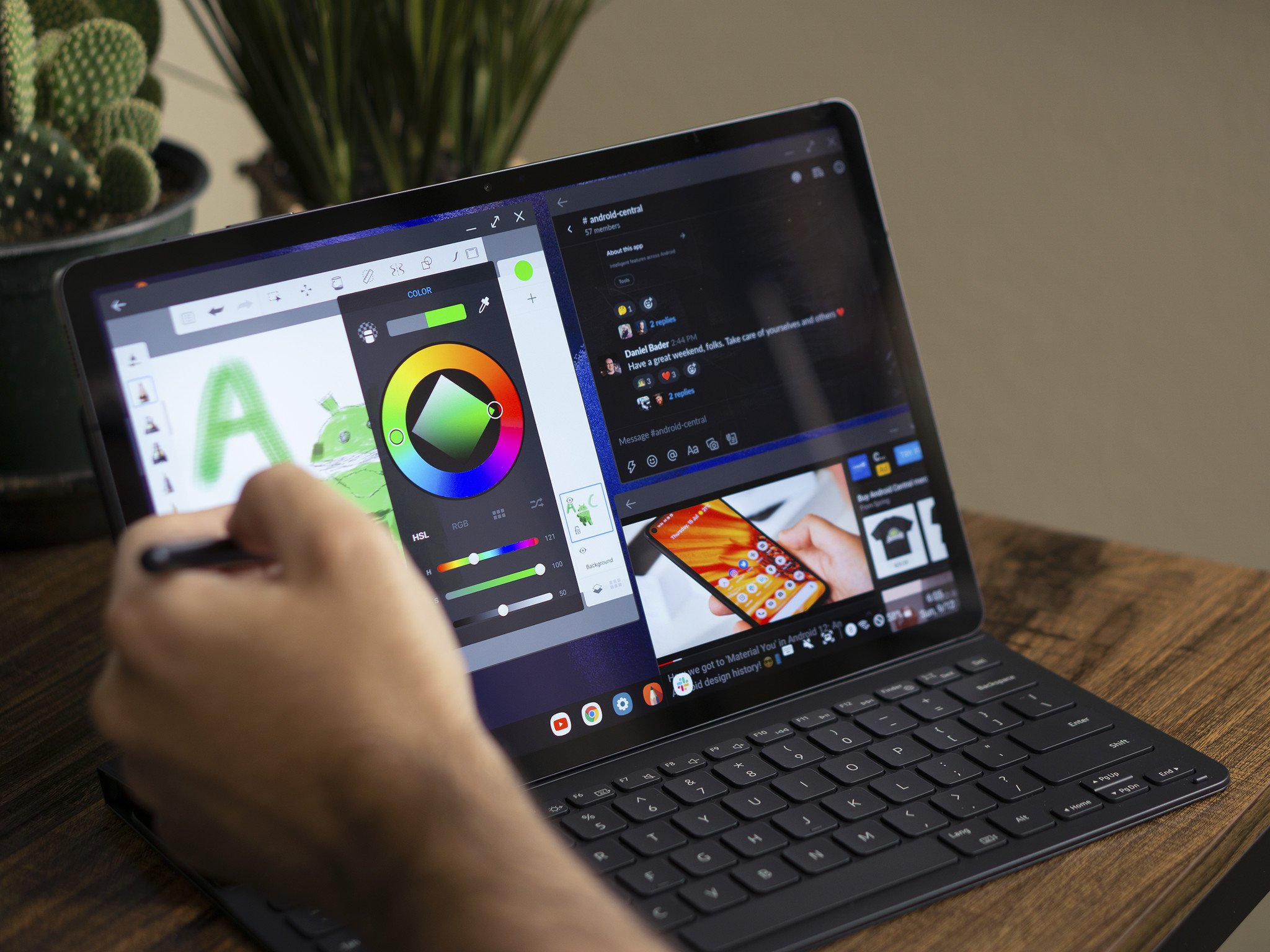Much like my compadre, Jerry Hildenbrand, I buy tech across a wide range of popular brands. For me, there's really no such thing as "brand loyalty" as I, too, just want to be able to use "cool tech." But there's one section of the tech market I won't touch anymore: any Android-brand tablet.
I'm not here to say that all Android tablets suck; just that most of them do. And it's not even a problem with the hardware, because the Galaxy Tab S7 FE is one sleek and good-looking device. My problem with Android tablets, on the whole, have more to do with the software and Google's decision to basically ignore that Android tablets exist.
Google continues to ignore tablets that aren't the iPad.
With a foot planted on both sides of the iOS vs. Android fence, I find it interesting how Google straddles the line between the two. On the one hand, Android users get access to new features and redesigned interfaces months (or even years) before iOS users — most of the time, at least. But then, outside of bug fixes, Android apps can end up practically abandoned by the developers, while Apple apps get more attention and cutting-edge tools.
Take the latest release of iPadOS 15, for example. Apple released the update for iPad owners across the globe, and you know which apps were among the first to get an update? Google's. Google even published a blog post detailing the changes that are now available for those who have updated to iOS 15 and iPadOS 15. These updates include support for the new XL widget size on the iPad and a useful Google Maps widget complete with buttons and shortcuts.
You can already resize widgets on Android tablets, but let's look more closely at that Google Maps widget. On my Pixel 5 running Android 12 and the latest available version of the Maps app, I don't get a single Maps widget with shortcuts embedded. Instead, five different 1x1 shortcut widgets can be added to the Home Screen.
It's time for Google to fix the Android tablet market, and only it can.
I won't bore you with every minute example of how Google neglects Android in favor of iOS. But this isn't an isolated example, and it's time to say enough is enough. Perhaps Android 12 with the Material You interface and the updated guidelines for widgets will change things. But that still doesn't mean diddly-squat if we don't have a great Android tablet.
To get the best experience with a Samsung tablet, you need to switch over to DeX Mode. Without it, most Android apps haven't been optimized properly for screens larger than a phone. While Samsung is working to solve these problems, it's doing so specifically to improve the software on its new foldable phones. The Galaxy Z Fold 3 is essentially a tablet that folds into a phone, not a true standalone tablet. It's unclear whether these efforts will bear fruit with the Galaxy Tab S8.
There is some hope on the horizon, as details regarding Android 12.1 have been leaked. Not only does this leak suggest that the long-rumored Pixel Fold could come to fruition, but it suggests Google is also working to improve the experience on devices with larger display sizes. But I'm not holding my breath.
The best Google tablet continues to be the iPad.
I'm perfectly happy and content with my iPad Pro and new iPad Mini 6. But that doesn't mean that I can't look on the other side and be disappointed with what's happening. We continue to see new Android tablets leaked and subsequently released, and they are all the same: Slabs of glass with software that merely blows up what we'd see on a phone.
Google tried re-entering the tablet market with the Pixel Slate, but it was an over-priced Chromebook and not an Android tablet. It hasn't been since the Nexus 7 and Nexus 9 days that Google has released a useful and meaningful tablet device. And that's been what, seven years? Google is conceding that iPads are more popular than anything that Android has to offer, and the only company that can fix that is Google.
Until that happens, I will continue to recommend the iPad as the best Android tablet, even with Samsung doing what it can with DeX.
Source: androidcentral

